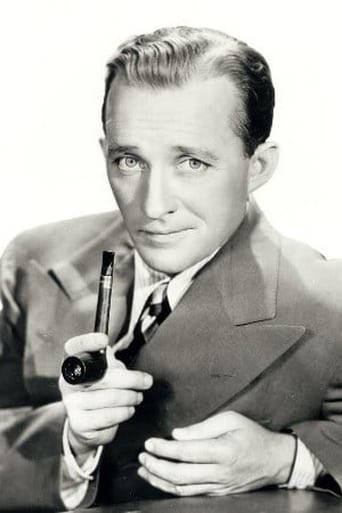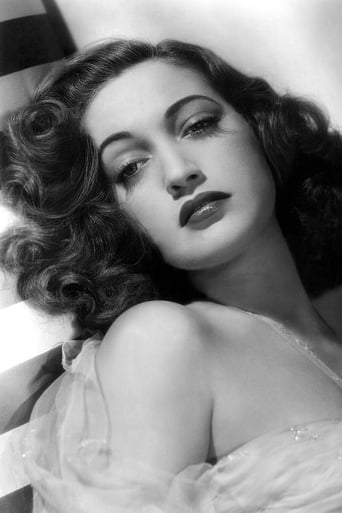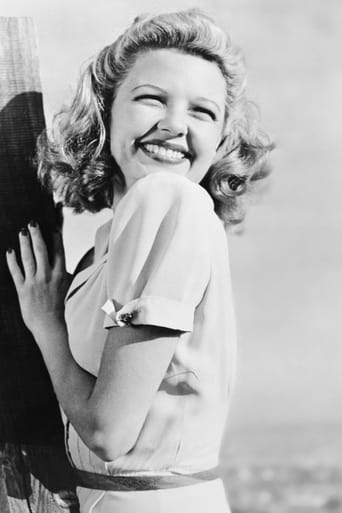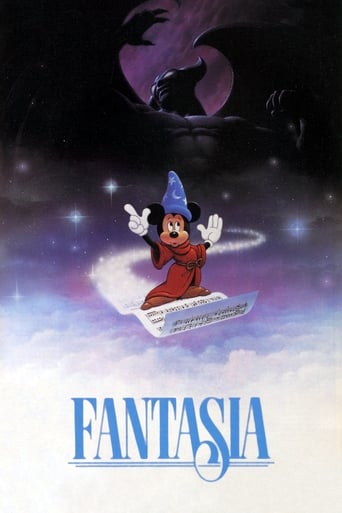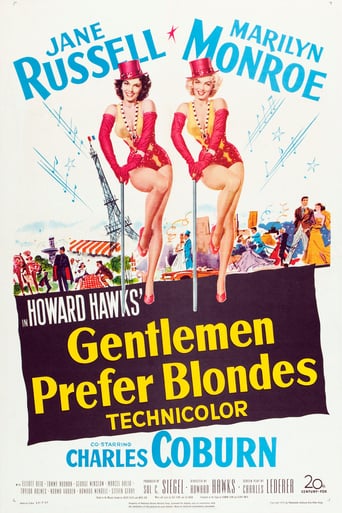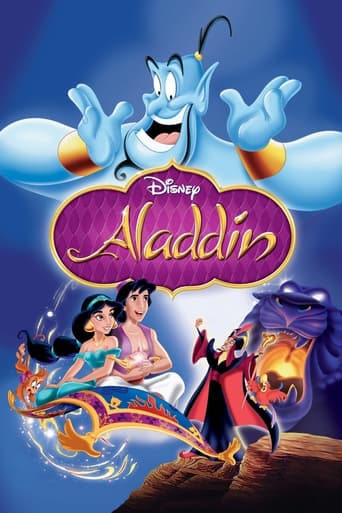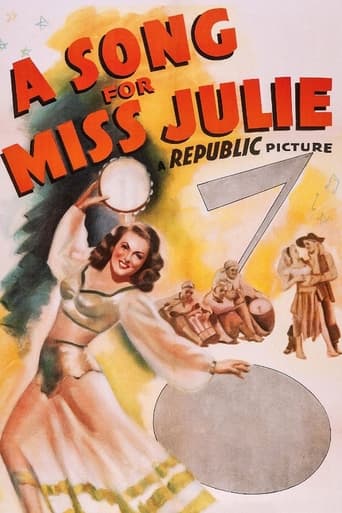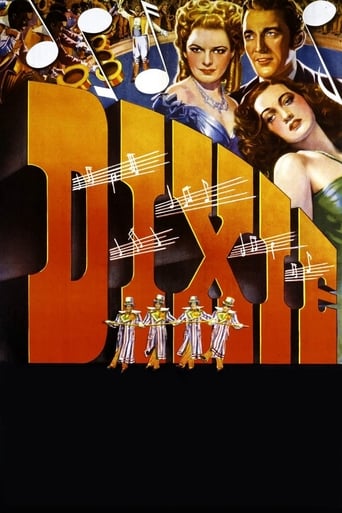
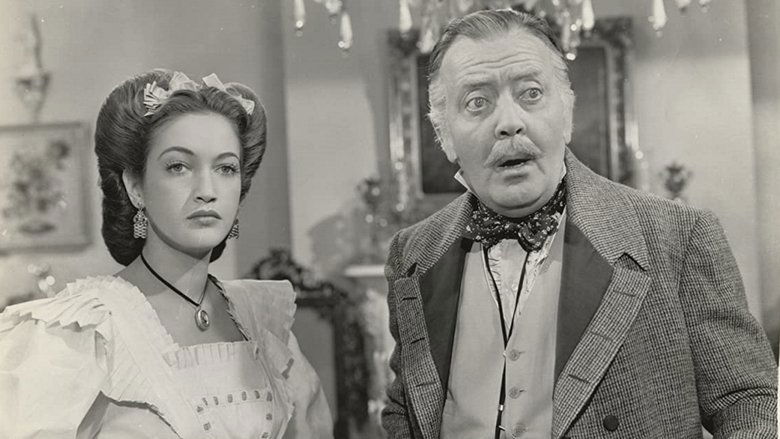
Dixie (1943)
A young songwriter leaves his Kentucky home to try to make it in New Orleans. Eventually he winds up in New York, where he sells his songs to a music publisher, but refuses to sell his most treasured composition: "Dixie." The film is based on the life of Daniel Decatur Emmett, who wrote the classic song "Dixie."
Watch Trailer
Cast


Similar titles
Reviews
Boy, that was a tough slog getting through all the history lessons and moral instruction regarding slavery. Yes, yes, it was a shameful period in America and minstrel shows were degrading, but most contributors forgot to evaluate "Dixie" - the movie, that is.Well, let me have a bash at it. When I think back on "Dixie", the first thing I think of is the ballad, "Sunday, Monday or Always", done to perfection by Bing at the beginning and at the end. Much of the rest of the movie is forgettable and uninspired. Paramount had assembled an excellent cast which is largely wasted in this fictitious biography of a forgotten songwriter. Maybe the biggest disappointment was the lack of spectacle and excitement in musical number after lifeless musical number, especially the last one. The choreography was almost non-existent and very understated, except for a dance by the largely wasted Eddie Foy, Jr. The script was desperately in need of a re-write - and what's with the fires? There were three separate fires in the course of "Dixie", one of which should have included Dorothy Lamour's thankless part.I guess musicals were not Paramount's thing. Such matters were best left to Fox or MGM, or even Universal, which had a few pretty good underbudgetted musicals. Our present rating is a little rich for "Dixie" - I gave it five and upped it to six on the strength of the song "Sunday,Monday or Always", which was gorgeous.
Dixie is a highly fictionalized biography of Daniel Decatur Emmett who was born in Mount Vernon, Ohio and was twice married: to Catherine Rives, who died in 1875 and then to Mary Louise Bird, a widow with two daughters.Emmett performed his first song Old Dan Tucker at the age of fifteen. He was one of four men in the "Original Virginia Minstrels," with Frank Brower. Billy Whitlock, and Dick Pelham. Emmett later performed with Bryant's Minstrels in New York and then with Leavitt's Gigantean Minstrels. Emmett wrote the song Dixie in the spring of 1859, while with Bryant's Minstrels in New York. At the beginning of the Civil War both armies marched to the tune of Dixie but by 1861 Dixie had become a Southern tune.The movie is essentially a series of songs and 'black-face' acts. The latter, although generally considered humorous in 1943, will probably offend many viewers today.
DixieThroughout history there has been hardships for African Americans. Slavery, obtaining human rights, and discrimination are examples of the hard times that African Americans have gone through. Many movies that were made around the 1940's can be offensive to many African Americans because these hardships such as slavery and discrimination are portrayed within them. Within the comical musical Dixie directed by A Edward Sutherland, 1943, it lets its viewers see and recognize what the time period was really like. Although the movie was well directed, written and acted out, the truth of the time period shines through. Although this film was not made to be offensive, it is. Slavery and discrimination are shown through the song "Dixie," and by characters within the movie. When Daniel Emmett went and performed with his, at first three partners, they used makeup to paint their faces black and over exaggerate the size of their lips. They talked as if they were uneducated and didn't understand things. Also characters from the audience at first were insulted and appalled that "darkies" were performing on stage. This attitude is not make- believe. This was the reaction of people during this time period to African Americans. During this time period Minstrel entertainment was popular during the 19th century. White performers would mimic African Americans as a main attraction by coloring their faces and using makeup to make it look like they have big lips and eyes. Later African Americans did participate in there own form of festivities called the Pinkster celebrations in which black and white performers would gather and celebrate the change of the season. This would ultimately change into a primarily African American holiday that slaves and free blacks would catch up with family and friends. This gave them a chance to express and pass on their traditions and cultures. Dixie portrays the discrimination and slavery that was still going on during this time period. The racism of the audience and reference to slavery within the song "Dixie" all show how this can be offensive to a wide majority of viewers. Although these are within the film, overall the film does a good job at showing what the time period was like and had a good story.
Paramount finally gave Bing Crosby technicolor in this 1943 film, presumably based on the life of Daniel Decatur Emmett, minstrel man and composer of many 19th century songs like Turkey in the Straw, Old Dan Tucker, and of course, Dixie.Seeing this film today and realizing that the song Dixie is a bad reminder of slavery for Afro-Americans and that minstrel shows in and of themselves are not so subtle examples of racism the film ain't recommended by this writer. It's a pity because technically the film is flawless, good writing, directing and acting.Crosby also sings one of his most famous movie songs, Sunday, Monday, or Always in this and the recording by Decca is an interesting story. For most of 1943 into 1944 the musicians union went on strike against the record companies. This played hell on Frank Sinatra who had just signed a contract with Columbia Records after leaving Tommy Dorsey. Bing was already established and Decca re-issued his old platters up to a point. Sunday, Monday or Always was such a mega-hit from the film that Decca got Crosby to record it with the Ken Darby Singers doing an a capella background. The flipside was If You Please also from this film. Columbia did the same thing with Sinatra for the songs from Higher and Higher. Both Crosby and Sinatra were accused of not honoring the musician's picket line and the practice was discontinued. But Sunday, Monday or Always became one of Bing's million sellers.One incident from the film is true. The song Dixie was originally written as a slow moving ballad. But a theater orchestra had to speed up the tempo to what we know today because of a threatening theater fire. That tempo change made it a hit and the rest as they say is history.Dixie doesn't mean to be offensive, the film was made in a different time. But offensive it is.I would only see it if you are Crosby fan or as a historical curiosity.


